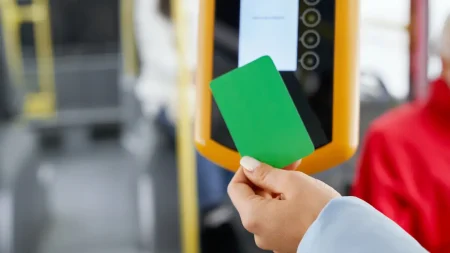When life presents a legal challenge, having the right support can make all the difference. For many South Africans, especially those who cannot afford private lawyers, legal aid is a lifeline — ensuring that justice is not reserved for the wealthy but available to everyone.
If you live in the Western Cape and need affordable legal help, this guide explains everything you need to know — from what legal aid is and who qualifies, to where to find Legal Aid South Africa (LASA) offices near you. You’ll also learn what documents to bring, how to prepare for your visit, and which alternative resources are available in your area.
What Is Legal Aid in South Africa?
Understanding Legal Aid South Africa (LASA)
Legal Aid South Africa (LASA) is a public entity established under the Legal Aid South Africa Act of 2014, mandated to provide free or subsidised legal assistance to people who cannot afford private legal services. The organisation operates across all nine provinces, including a strong presence in the Western Cape.
Its mission is simple: to ensure equal access to justice for all, regardless of financial status, gender, or background.
Core Services Provided by Legal Aid South Africa
Legal Aid SA offers a wide range of legal services, divided mainly into criminal and civil matters. Here’s what they cover:
1. Criminal Matters
- Legal representation for accused persons in criminal cases (from Magistrates’ Court to High Court).
- Assistance for detained individuals awaiting bail.
- Appeals and reviews in criminal cases.
2. Civil Matters
Civil cases often involve everyday issues that directly affect families and livelihoods. Legal Aid SA can assist with:
- Family law: Divorce, maintenance, child custody, and protection orders.
- Housing and land issues: Evictions, unlawful occupation disputes, and land rights.
- Employment: Unfair dismissal, workplace discrimination, or unpaid wages.
- Consumer and credit issues: Debt counselling, credit agreements, or repossessions.
- Administrative justice: Challenging unfair government decisions.
3. Specialised Units
LASA also runs specialised units focusing on:
- Children’s Rights
- Land and Housing Rights
- Refugee and Immigration Law
- Impact Litigation (cases affecting groups of people or national interest)
Who Qualifies for Legal Aid
To access Legal Aid South Africa’s services, applicants must pass two tests:
- Means Test (Financial Eligibility)
- If you own a home, its total value and your possessions must not exceed R665,800.
- If you don’t own property, your total assets must be below R141,900.
- If you are employed, your monthly income (after tax) must not exceed R7,700.
- Children and the elderly are often exempt from the means test.
- Merits Test (Legal Validity)
LASA will only take your case if it has reasonable prospects of success and falls within their mandate.
If you don’t qualify financially, LASA can still provide free legal advice or refer you to other organisations for help.
How to Find Legal Aid Offices in the Western Cape
For the most up-to-date information or to find the nearest office to your location, contact the National Advice Line at 0800 110 110 or visit the official website at www.legal-aid.co.za.
| Office Location | Head of Office | Telephone | Fax | Physical Address | Postal Address |
|---|---|---|---|---|---|
| Cape Town (Head Office) | Mr Elroy Machelm | (021) 426 4126 | (021) 426 5766 | 3rd Floor, South African Reserve Bank Building, 60 St Georges Mall, Cape Town, 8001 | PO Box 516, Cape Town, 8001 |
| Bellville | Ms Ronelle Arendse | (021) 949 3062 | (021) 949 2534 | Van Der Stel Building, 68 Durban Road (corner Voortrekker & Durban Roads), Bellville, 7535 | None listed |
| Stellenbosch | Mr Shawn Flowers | (021) 882 9221 | (021) 882 9237 | Office 201, 2nd Floor, Eikestad Mall, Bird Street, Stellenbosch, 7600 | PO Box 534, Stellenbosch, 7600 |
| Athlone | Ms Nomawethu Mtebele | (021) 697 5252 | (021) 697 5316 | 2nd Floor, Melofin Centre, Old Klipfontein Road, Athlone, 7764 | PO Box 166, Athlone, 7760 |
| Caledon | Ms Netarie Verwey | (028) 212 1815 | (028) 212 1826 | 22 Church Street, Caledon, 7230 | None listed |
Additional Notes
- This list includes main regional offices; there are additional satellite and walk-in service points throughout the province.
- University law clinics—such as the University of the Western Cape Law Clinic (Old Library Building, Modderdam Road, Bellville)—also offer free or low-cost legal services.
- Walk-ins are welcome, but booking an appointment is recommended to avoid long queues.
- To qualify for legal assistance, applicants must typically pass a means test assessing income and assets.
- Residents in rural or remote areas should contact the national helpline (0800 110 110) for details about the nearest satellite office or outreach service.
How to Prepare for Your Visit
When visiting a legal aid office, preparation ensures that your case is handled efficiently and effectively. Here’s how to get ready.
Documents to Bring
- South African ID or passport
- Proof of income (payslips, SASSA grant slips, or pension statements)
- Proof of residence (utility bill or lease agreement)
- Relevant legal documents (court summons, letters, contracts, or eviction notices)
- Bank statements (if applicable)
- Marriage certificate, birth certificates, or death certificates (for family matters)
- Police reports or affidavits (if relevant)
Having all these ready helps speed up your eligibility assessment.
Questions to Ask
- Does my case qualify for legal aid?
- What happens after I submit my application?
- Will I get a dedicated lawyer?
- How long will it take to hear back?
- What are my responsibilities during the case?
These questions show initiative and help you stay informed throughout the process.
Understanding Eligibility Criteria
Legal Aid SA staff will check whether:
- Your case type qualifies (criminal, family, housing, labour, or civil).
- You meet the financial requirements (means test).
- Your case has merit — meaning there’s a reasonable chance of success.
If accepted, you’ll be assigned a legal representative at no cost. If not, you’ll receive advice or be referred elsewhere.
Alternative Legal Aid Resources
If you don’t qualify for Legal Aid South Africa services or need additional help, the Western Cape offers several alternative legal resources.
1. University Law Clinics
Many universities operate free community law clinics where final-year law students, supervised by qualified attorneys, offer legal advice:
- University of Cape Town Law Clinic – (021) 650 3775
- Stellenbosch University Law Clinic – (021) 808 3600
- University of the Western Cape Law Clinic – (021) 959 3291
These clinics assist with housing, labour, small claims, and family law issues.
2. Non-Governmental Organisations (NGOs)
- Black Sash Trust – Provides paralegal advice on social grants, housing, and rights education.
- Legal Resources Centre (LRC) – Handles human rights and constitutional cases.
- Women’s Legal Centre – Focuses on gender equality, domestic violence, and women’s rights.
- Community Advice Offices (CAOs) – Found in most districts, providing free assistance on consumer, labour, and municipal issues.
3. Online Legal Aid Portals
- Legal Aid SA Website: www.legal-aid.co.za
- Department of Justice & Constitutional Development: www.justice.gov.za
These portals allow you to download forms, read guides, and find office contact details.
Tips for Maximising Legal Aid Services
Getting the best results from your legal aid experience depends on communication, preparation, and follow-through.
1. Communicate Clearly and Honestly
Be open about your financial situation and legal problem. Hiding details can delay or jeopardise your case. If you don’t understand something, ask for clarification.
2. Know Your Rights
You have the right to:
- Be treated with respect and dignity
- Receive clear explanations about your case
- Confidentiality of your information
- Free services if you qualify under the means test
3. Follow Up Regularly
Keep a record of:
- Your case number
- The lawyer or paralegal handling your case
- Any deadlines or court dates
Call the office or visit periodically to stay updated on progress. Legal processes can take time, but staying informed helps you manage expectations.
4. Keep Copies of Everything
Always make photocopies of important documents submitted to Legal Aid SA. Keeping your own record helps avoid confusion if you need to refer to past communication.
5. Use Referrals if Declined
If your case isn’t accepted, ask for a written referral to another clinic or NGO. Legal Aid SA has partnerships with many community organisations that can still help.
6. Stay Polite and Patient
Offices often handle high volumes of cases. Showing patience and courtesy helps staff process your matter efficiently.
Also check: Legal Aid Offices Near You — Eastern Cape
Everyone deserves fair treatment under the law. Whether you’re in Cape Town, George, Stellenbosch, or a small Karoo town, legal aid services are here to help.
Legal Aid South Africa and its partners ensure that no one in the Western Cape is denied justice simply because they cannot afford it. From family law to criminal defence and land rights, you can find a compassionate, qualified legal team ready to guide you — free of charge.










